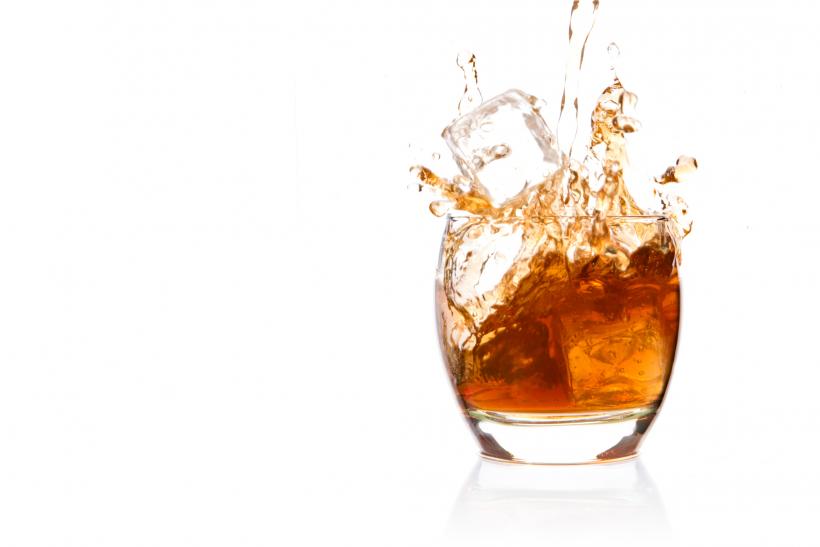
So I happened to notice Mark Bittman’s ode to alcohol, “The Drinker’s Manifesto,” in the New York Times earlier this week. And while I rarely spend much time contemplating drinking (rather than, say, just popping bottle caps), he surfaced some interesting stuff that got my gears turning.
Like did you know that some studies show that moderate drinkers who ingest the same number of calories as non-drinkers gain less weight over time? He also mentioned the, much-rumored, but who really knows adage that drinking “the right amount” can even be . . . good for you. Obviously I had to know more so I did a little digging and discovered that, in fact, there are some real health benefits to the occasional—even daily!—Chardonnay (or IPA . . . or Tequila.)
People have actually been discussing the benefits of alcohol since, literally, biblical times—alcohol’s medicinal properties are mentioned a full 191 times in the Old and New Testaments. As for more scientifically rigorous findings, one of the earliest studies demonstrating the health benefits of moderate alcohol consumption was published in the Journal of the American Medical Association—in 1904.
And since then, positive findings have been proven again and again all over the world.
What kind of findings you ask? According to a study conducted by the CDC (the findings of which it obviously quietly downplayed), moderate drinking contributes to living longer lives. That’s right, moderate drinkers (defined for women as imbibing 1-2 drinks a day and for men, 2-4) live longer than both heavy drinkers—and teetotalers.
The National Institute on Alcohol Abuse and Alcoholism also discovered that the lowest death rate from all causes occurs among the population of people who put one to two drinks back per day. Even Harvard has our backs on this one! Their researchers found that the risk of death from all causes was reduced between 21 and 28% among men who drank moderately. And for the lady imbibers? A Harvard Nurses’ Heath Study of over 85,000 women also confirmed a reduced mortality rate among those who opted to get their (moderate) drank on.
Why does booze bolster our bodies?
This is in part because a conservative intake of alcohol decreases heart disease risk—which is pretty notable given that cardiovascular disease is the number one cause of death among Americans. Alcohol is basically a glorified blood-thinner (which you probably knew) but this translates to all kinds of benefits:
1. Improves blood lipid profile, increasing "good" cholesterol, HDL
2. Reduces coronary artery spasm in response to stress
3. Reduces blood pressure
4. Decreases thrombosis (blood clotting) as well as platelet aggregation
5. Reduces blood insulin
And here you thought your bottle full of 'bub was wreaking havoc on your temporal bodily temple.
Researchers at Emory University and Beth Israel Deaconess Medical Center found that consuming 1-3 drinks per day resulted in a 47% decrease in risk of heart failure—and 32% decrease in risk of death following a heart attack.
Dr. Eric Rimm of the Harvard School of Public Health:
"I think it's really overwhelming evidence. Men and women who drink moderately have a 30 to 40% lower risk of having a heart attack than those who abstain."
All of this, of course, is not to discount the very real dangers and costs of alcohol over-indulgence—as most personally testified just this past Sunday morning when I was reduced to a mumbling, bleary-eyed mass of “ohh the waves of awful keep breaking over me—when will this misery end.” But brutal hangovers aren’t the only concern.
As the Washington Post recently pointed out: “Alcohol is still the deadliest drug in the United States; it's involved in more homicides than almost every other substance combined." The CDC says that excessive alcohol consumption causes 88,000 deaths a year and “costs the economy about $224 billion.” Woah. And that's to say nothing of the devastation caused by alcoholism.
So let’s keep things in moderation, yeah? Maybe for some help we can turn to the sacred SOLO cup’s hallowed lines for some guidance? Actually, as it turns out, the structural indentations of this hallowed chalice were not in fact designed to help measure booze. How would I know? Apparently in response to the perpetuation of this myth, SOLO Cups made a detailed graphic on the matter, included on its Facebook page (!):

So go forth and knock a couple (emphasis on a couple) back, dear Ravishers. You’ve got science on your side.






